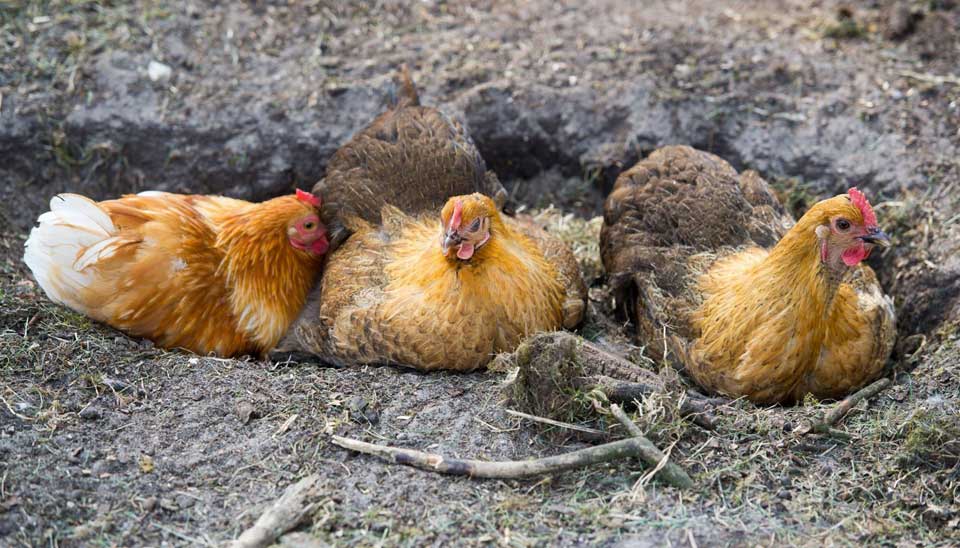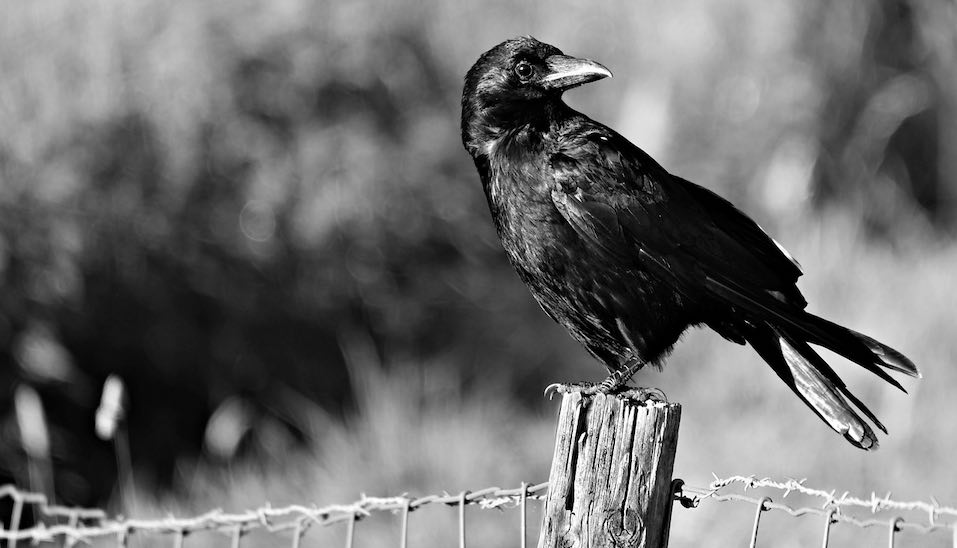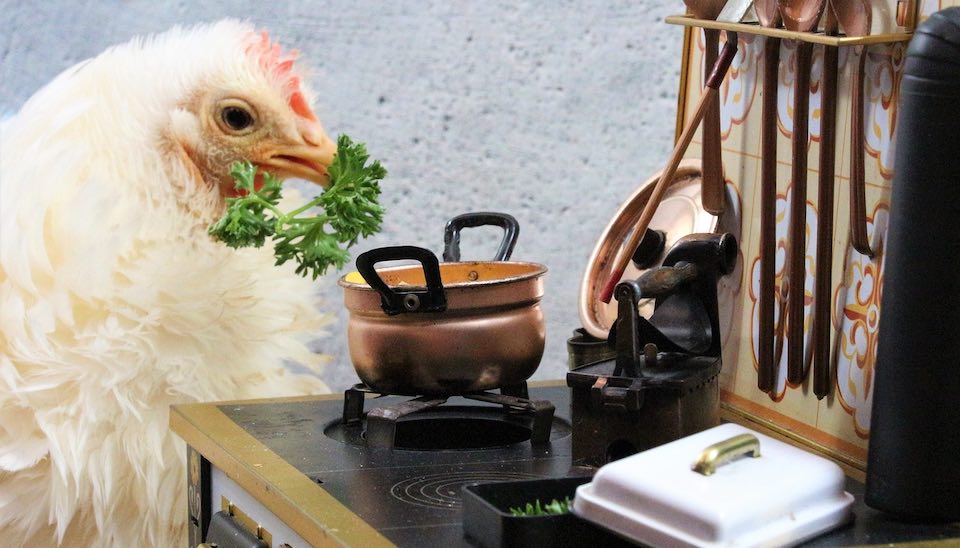What is a Chicken Dust Bath? Easy steps to make one
What is a Chicken Dust Bath?
If you've ever stopped to watch your backyard chickens, you will notice that they will frequently coat their feathers in dust and dirt, and they appear to delight in doing so. Your first instinct might be 'Nooooo! You are getting so dirty (and creating a huge mess);' Yet as I will explain, this chicken behaviour is not just enjoyable for them, it is your chickens 'way of keeping themselves clean.
While this bathing method seems unconventional to us, it is quite useful and effective. The dust not only helps to remove excess oil, it also makes their feathers a less desirable home for parasites such as lice and mites to thrive on.
This innate behaviour is not exclusive to chickens. Many other birds and also mammals partake in dust bathing to keep fresh and clean.
How chickens bathe in dust
Not only do chickens love a good dust bath, but they also love to do it with the rest of the flock. If one hen starts scratching, wriggling and flapping in the dirt, she will most likely be quickly joined by other hens in the bathing session. Not only do they bathe for hygiene, but it's also a great time to socialise!
Chickens will scratch out a dusty or dirty place in either the garden or what once was your lawn until they have an indentation that is at least their body size. Once they are happy with their bath, they will crouch down into the dust and scratch at the soil and flap their wings. You will even see them wiggle in the dirt as they try to get a good thorough clean in and among their fluffed up feathers.
Once satisfied they will start preening their feathers using their beak, to remove excess dust and dirt. They will smooth the oil secreted from a gland at the base of their tail over their feathers and remove loose feathers.
Dust Bath and Parasites
Unfortunately, backyard chickens and their coop are highly susceptible to both lice and mites. Not only can these parasites cause your feathered friends great discomfort, they can also be the source of malnutrition and illness.
Dust helps to control parasites by making a chicken's body less habitable.
As a backyard chicken owner, it is crucial to encourage dust bathing as part of your coop management and hygiene plan.
If you are concerned about parasites, read up up the symptoms of parasites
Chickens are well and truly able to make their own dust bath. They love making their dust bath in the chicken run. However, you can add a few things to the bath that will help keep parasites at bay and ensure a thorough clean.
Also, if you would prefer that they didn't scratch in and around your garden, you can make a dust bath for your backyard chickens. Using a wading pool, an old crate or trough, you can create a bath of their dreams.
Making a dust bath in the coop can also be a good idea if you are in an avian influenza area or you are having lots of rainy weather which makes it hard for your chickens to bathe.
Chicken Dust Bath Recipe
- Dig a hole approx. 60cm in diameter and approx. 20cm in depth. Alternatively, make a raised frame out of wood, as you would for a sand pit. You can make it wider if you wish and insert a plastic childs wading pool to hold you dust bath mixture. If you use the wading pool idea it also makes it easy to change empty and change the dust bath when required.
- Add some fine dirt or sand
For a thorough clean, chickens require powder-like dirt to get in and among their feathers. The fine grit is easy to scratch up and fluff under their wings
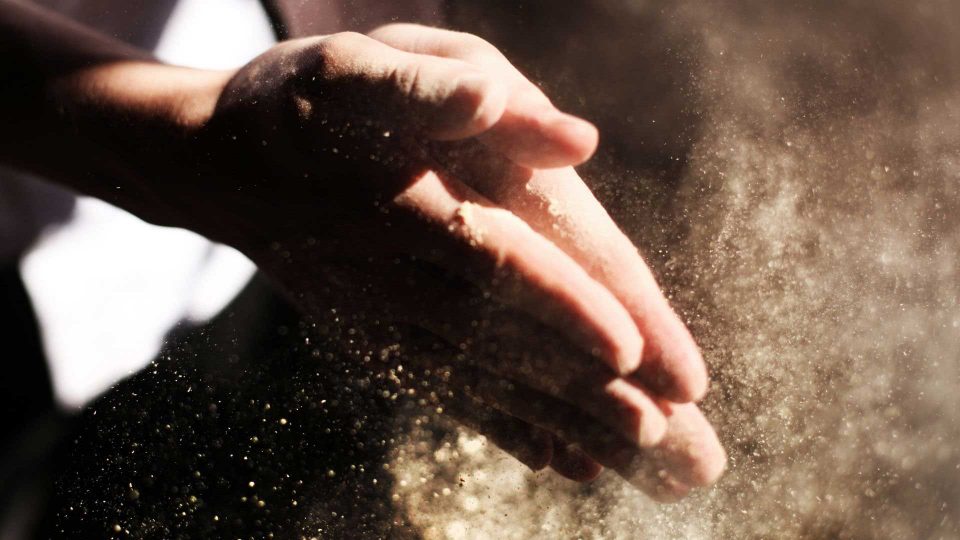
- Add Diatomaceous Earth
Pronounced DIE-A-TOE-MAY-SHUS; Diatomaceous Earth adds an extra layer of protection against lice and mites. This well-known insecticide is entirely natural, made from fossilised remains of algae. A handful in the dust bath is plenty.
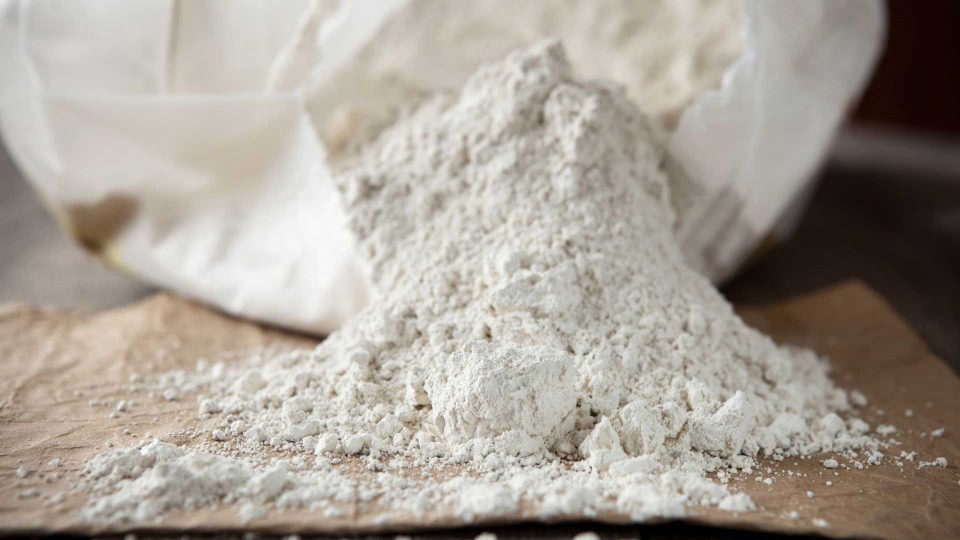
- Add wood ash to the dust bath Wood ash or ash from a fireplace can be a good contribution to your chicken's dust bath, adding vitamins and further deterring pests. The charcoal in the ash helps to absorb toxins on their feathers. Note: if using ash from a fire be sure that it does not contain any lighter fluid or chemicals.
- Add some fragrant herbs
Herbs such as lavender, mint and rosemary not only make your chickens smell lovely, they also contain natural insecticides. Simply sprinkle dried herbs where your chickens bathe.
- Cover the bath
A dust bath works best when the dust is bone-dry, and is not clumping. Adding an umbrella, tent or tarp over the dust bath when it is raining will ensure your hens can get dirty when they need to.
Other related articles:
Why do chickens scratch the ground?
Chicken Coop Lice and Mite Treatment
Related Products


